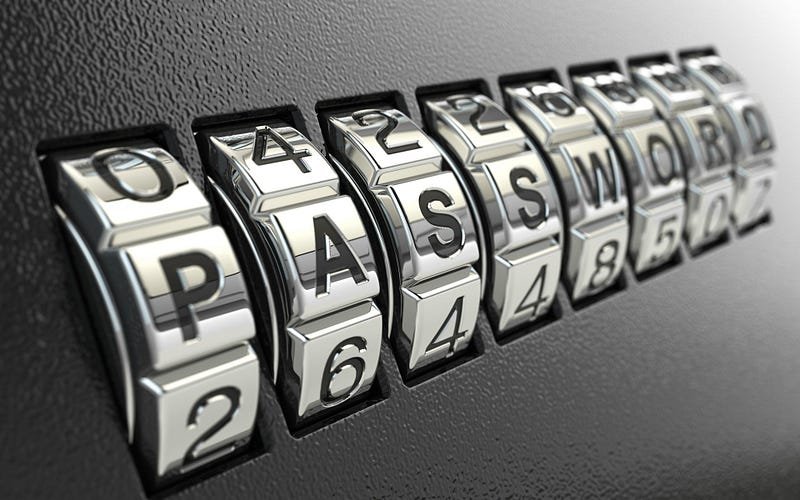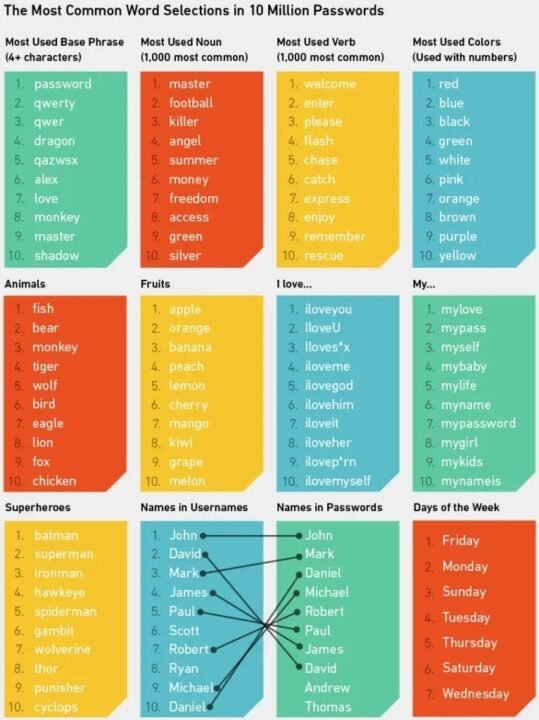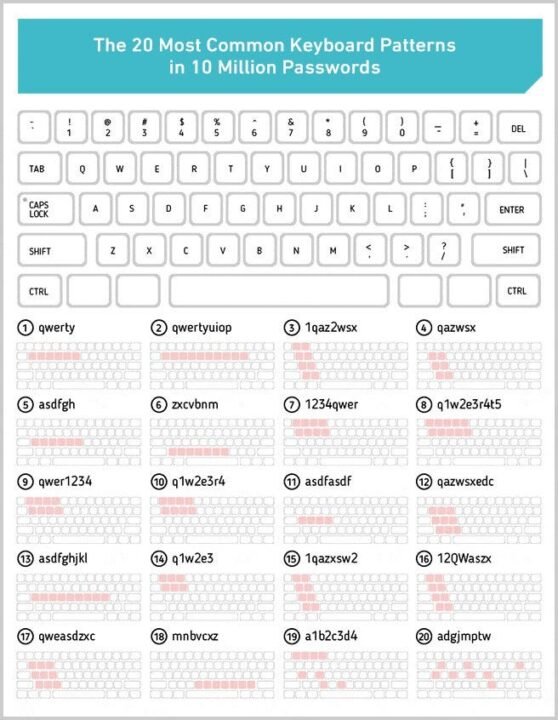Do you use any of these passwords? Please, change them now!

We are sure our post today will be interesting for many because it’s about cyber security and, more precisely, the passwords we use on the Internet.
In particular, those passwords that protect some of our most intimate secrets.
Do you know what the most insecure password in the world is?
No?
Then keep reading further.
You probably will be amazed when I tell you that the answer is easy: “123456”.
The image below illustrates the most used numbers in the passwords people create in their minds — it seems these are our “favourite numbers”.
The passwords we use on the Internet are usually short, simple and easy to crack.
Not for lack of effort when thinking about them, at least not in all cases, but because we tend to use words, numbers and combinations of both with symbols that follow patterns common to the reasoning of a good part of human beings, as revealed by a study by the company WP Engine.
This research, for which a sample of 10 million passwords devised by people has been used, reveals that the most common combination to protect accounts of any internet platform is “123456”, the second the word “password”, the third “12345678”, the fourth “qwerty”, and so on.

In addition, researchers also identify the most frequent combinations of words and numbers.
Thus, for example, almost 24% of users who chose to put a number at the end of their password chose 1, nearly 7% chose the number 2, while 3.5% went for the number 12.
The researchers emphasize that many people used the same word that appeared in their username in the password.
Another combination they identified was the twenty most frequently used keyboard patterns online.
For example “Qwerty” occupies a prominent first position, and most of them have to do with simple paths that can be remembered very quickly, such as “q1w2e3r4t5”, “asdfgh”, or “qwer1234”.

Only one of those 20 different keyboard combinations puzzled the researchers because it followed no simple pattern: adgjmptw.
But relatively soon, they manged to solve the puzzle and to unveil the mystery.
It was the first letter assigned to each number on the keyboards of mobile phones if a dial from 1 to 9 is followed.
His mistake was to think only of computers in a world dominated by smartphones.
Those responsible for the study explain that people unconsciously introduce easily identifiable patterns in their passwords, so a good decryptor can establish rules from those patterns that significantly accelerate the decryption of each one of these combinations.
They also point out that the same investigation of those ten million passwords has revealed that the longer they are, the more difficult they are to crack.
This is because the longer length implies more combinations of words, numbers, and symbols, making it challenging to figure out.
Despite this, the average length of the passwords studied was eight characters.